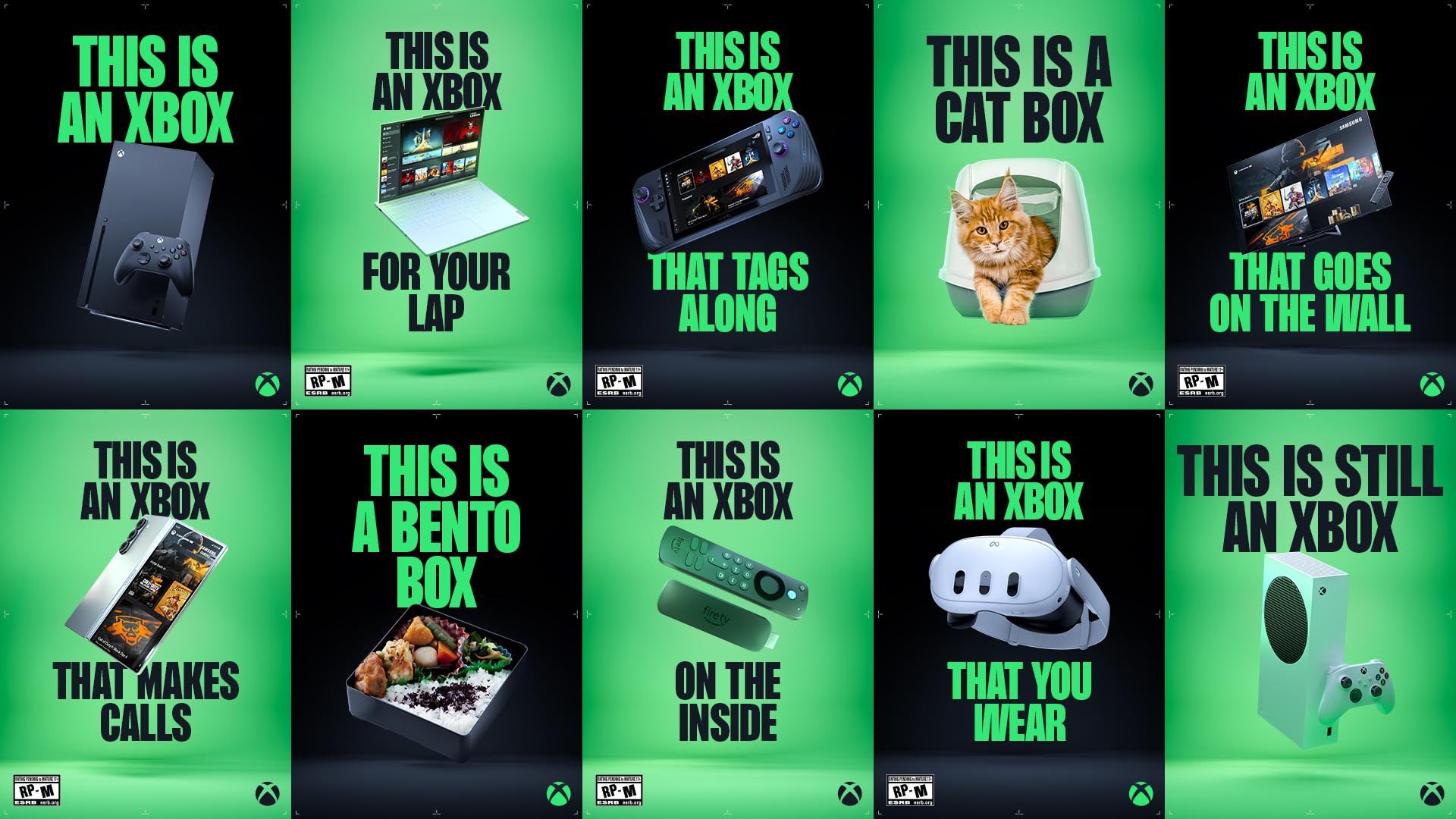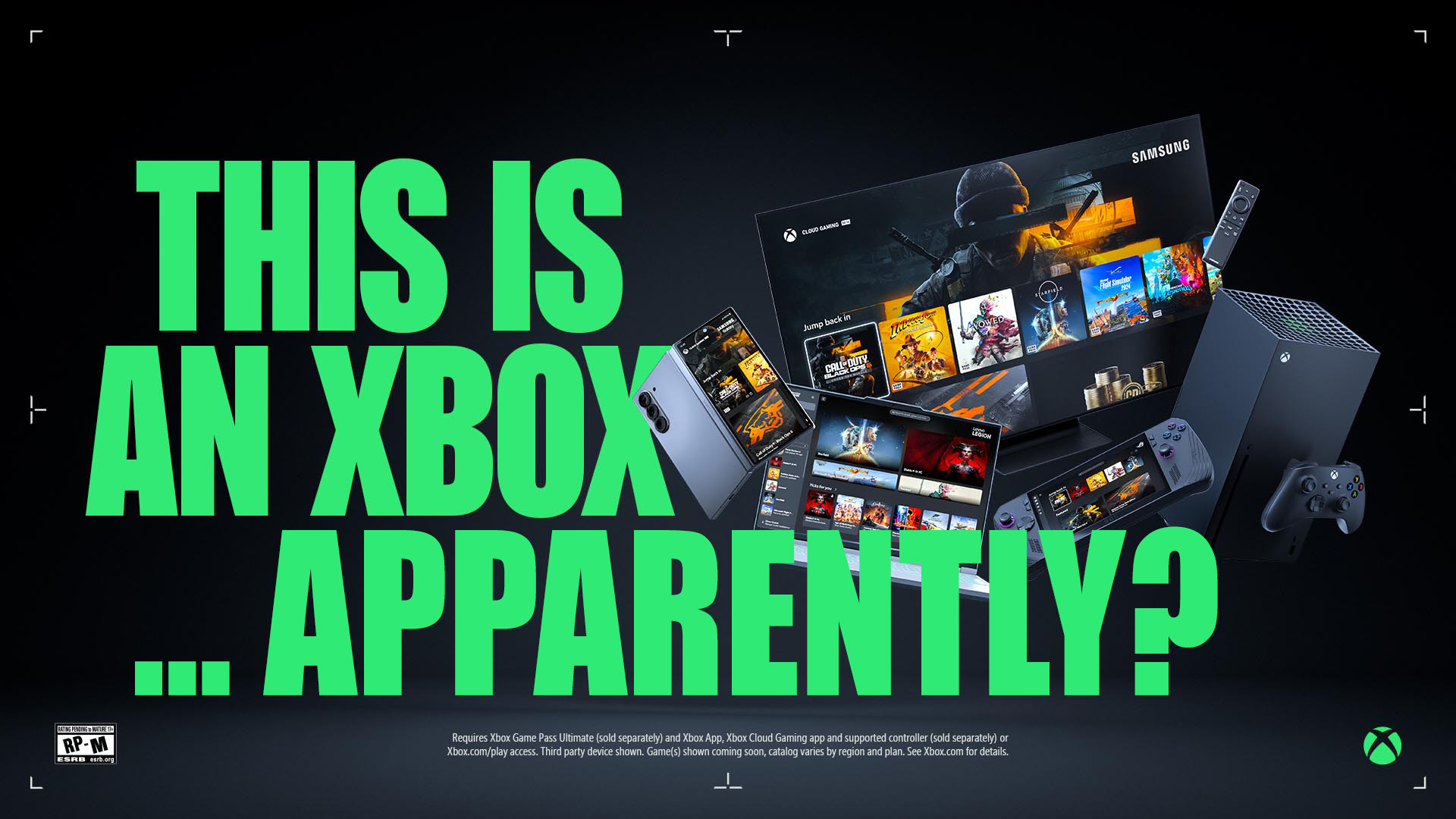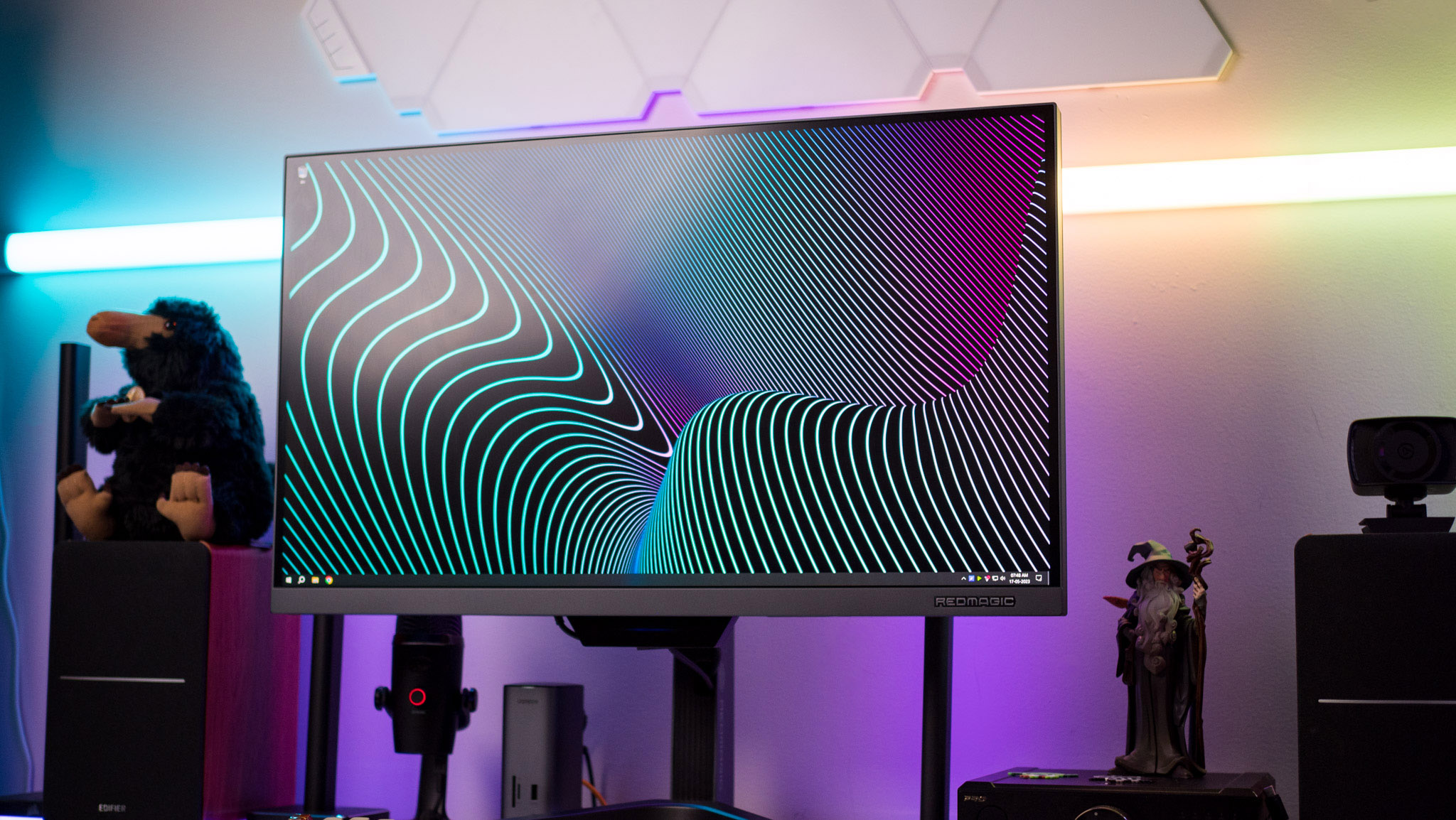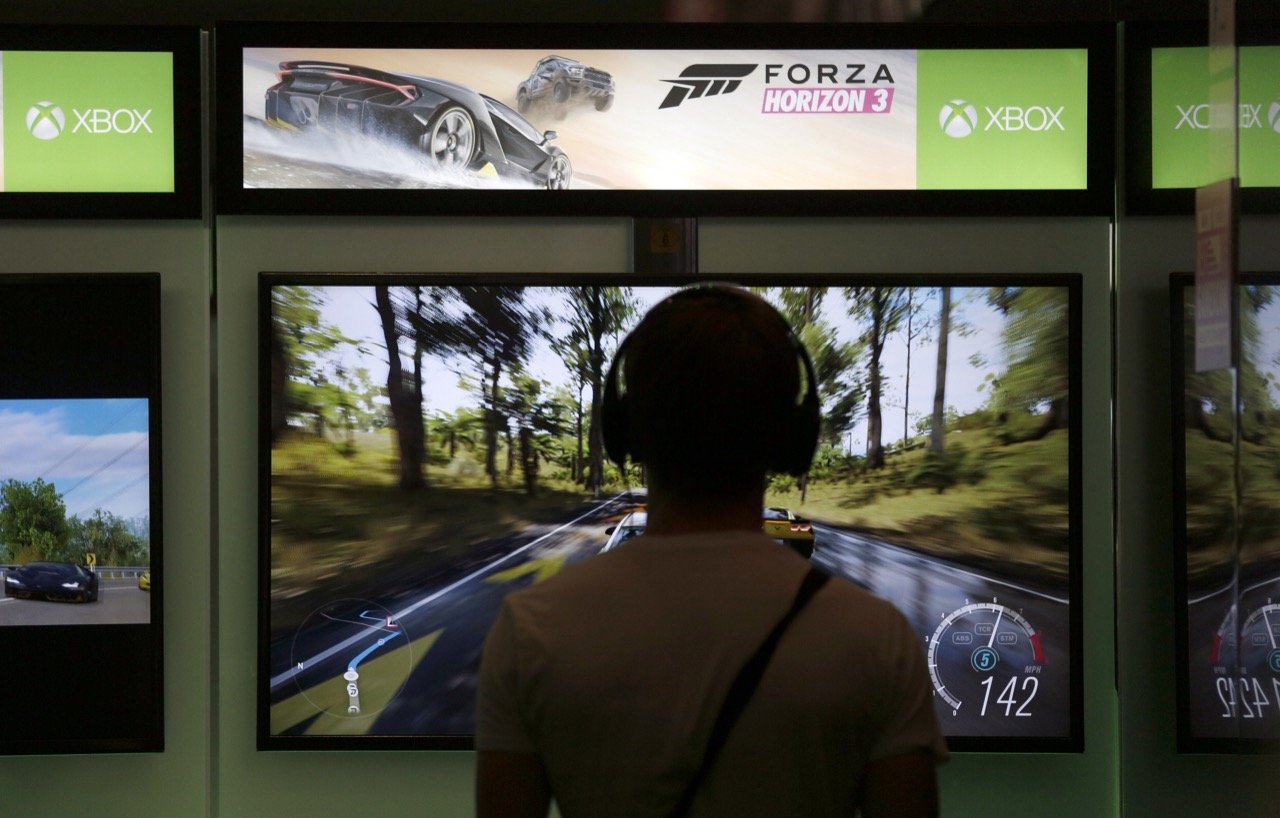
The atmosphere of Xbox is looking quite different with every passing year. Three years ago, we were all freaking out over Starfield becoming exclusive. Two years ago, fans wanted the largest acquisition in all gaming to be passed so they could enjoy Activision and Blizzard titles on Game Pass. This year, Microsoft says that it wants to redefine Xbox fans as they're being told an Xbox is no longer the only Xbox.
"This is an Xbox" campaign launched last month, and it destabilized the status quo. The new advertisement launch put a referendum on gamers on what an Xbox truly was. For years, an Xbox has been an Xbox, right? Today, that means either the monolithic Xbox Series X or the cutesy Xbox Series S. Now, it seems to be anything with a TV screen and internet connection.
What are the experts saying about the campaign?

Deadly Headley, YouTuber, Podcaster, and all-around incredible human being, recently dove into the "This is an Xbox" campaign, embedded below.
"There's a lot of fear, uncertainty, and doubt circling Xbox's new ad campaign. And I can understand why; It's extremely disruptive. But guess what? That's the point."
Headley dives right in, warning fans that this campaign wasn't conceived to coddle the likes of you or even me; it's designed to reach a target demographic that doesn't understand the idea of app exclusivity. It's targeting the phablet kids that are coming up behind us. An entire generation has grown up on tablets and cell phones with the power, as of today, to push graphical limits that would have my TI-83 batteries exploding. Furthermore, all of those mobile platforms are entirely device agnostic. The hardware is incidental, and that's ultimately what Xbox is trying to get across with this messaging stream.
As he points out, generation after generation, Xbox hardware has continued to see a decline in sales. Year-over-year even. As a result, Microsoft faces the dilemma of what to do with $82 billion dollars in its last two acquisitions. How do you get the games into the hands of players without a console?
"No console required" is an invitation to those without access to the console itself. As Headley puts it, "Microsoft's pivot into the cloud gaming space and its controversial "no console required" initiative was the tech giant's attempt at removing a significant barrier of entry (the upfront cost of console hardware) by leveraging cloud gaming technology and a massive library of titles on Xbox Game Pass."
It really is a no-brainer when you think about the picture at large. The problem, and many of us already recognize it, is that Microsoft is trying to take a photograph without having yet invented the camera. Only some devices support certain games; you can't play the titles you own everywhere yet (although we're getting there), and you can't even purchase games on the Xbox mobile app.
The problem and solution


• Best Xbox / PC headsets in 2024
• Best upcoming Xbox / PC games
• Best Xbox controllers
• Best Xbox accessories
• Best small gaming PCs
• Best gaming laptops in 2024
That's where Deadly dives in as well, "It's not possible to download games to every device or buy games on every device. It's not possible to play Xbox games on every smart TV without the assistance of some additional hardware like a Fire TV Stick. Even then, the Xbox app is only available on specific Fire Stick models. And then there's the common complaint about the Xbox experience on PC not being up to scratch."
Then there's another problem: What about people who don't even know what Game Pass is? To us gamers, that sounds hysterical, but Headley mentions that his own coworkers don't even know what Game Pass is. He defines this mythological service as one that grants instant access to hundreds of games across multiple devices. To which he gets a resounding, "What?" I'm sure many of you reading this have similar stories too.
This is where the advertisement "This is an Xbox" comes into play. It's there to demonstrate what and how the ecosystem works. It's a catchy, flashy wave of the hand that propositions users to walk the platform and see what it has to offer. Even down to a cute quiz on the website that exhibits what an Xbox is.
Headley ultimately makes the point that the advertisement is deliberately vague, designed to create a "curiosity gap," and send users on a journey to figure out exactly how their phone is an Xbox. It's a bold strategy, but it potentially comes at the price of convincing gamers who have a preconceived idea about what Xbox is that Xbox as we know it is ultimately going away... what if they don't want the new thing?
The ramblings of a boomer (me)

In a perfect world, we'd all understand that this is the direction Xbox is looking to take, but we don't do we? Instead, in conjunction with other recent moves by Xbox, this only puts a spotlight on other issues current Xbox fans are dealing with.
For instance, what about Xbox games going to PlayStation? Game Pass isn't available on that platform and may never be, but that doesn't mean it sends a positive message to fans already questioning decisions at Xbox. No one can tell what the overall effect will be, but it certainly feels like Xbox is looking to attract gamers at the cost of others.
After years of players simply wanting more or better exclusives, Xbox finally has some of the finest content we've seen in years coming down the line from their studios. Did all those acquisitions and increased player agency come at the cost of game retention? Do exclusive games cease to exist to regain the money they've spent? At this point, all we have to go on is Satya Nadella, CEO of Microsoft, saying, "We're redefining what it means to be an Xbox fan." Not every lifelong fan may want to stick around while you throw goodies at what some may perceive as only bandwagoners.
Credit is due to Deadly Headley, though. For weeks, I haven't been able to describe how I felt about the recent Xbox advertisements. I didn't fully comprehend the reasoning behind it, and thanks to his insights, it's a much better fit overall.
There's a strong desire within Microsoft for them to leverage the Zoomer generation. A fresh start, if you will, to make impacts in their player base that could cause ripples, if even waves, for decades to come. Let's hope we can all swim.
Read next: Inside the risky strategy that will define Xbox's next decade







